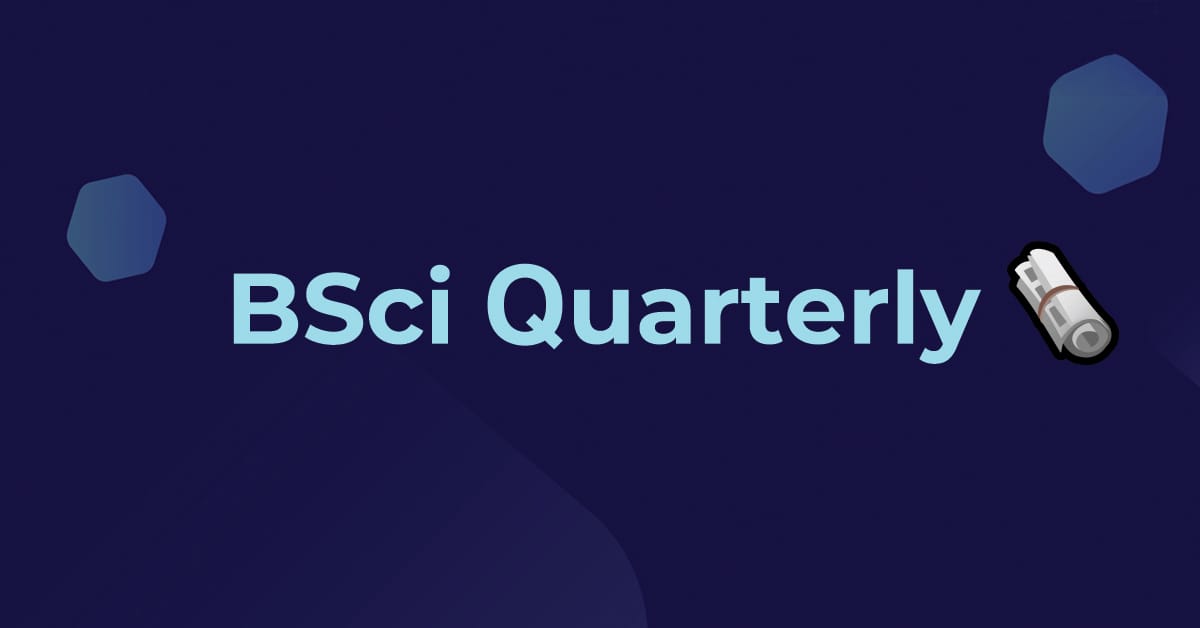Welcome to the BlockScience Quarterly newsletter! Our aim is to provide you with the latest news and insights on emerging technologies, innovation, and their impact on society.
We’re excited for summer and the longest days of the year! 🌞⛱️Our team is spending more time outside, enjoying nature, family, and friends — while still managing to publish more than we can fit into one newsletter!
This quarter, our researchers authored several thought-provoking articles and papers focused on governance and social science, economics, and mechanism design, as well as computer & data science, machine learning, and AI.
We were also delighted to participate in several talks, presentations, and events, including Compute Over Data Summit in the USA, Constitutionalism and Blockchain in Italy, and the Crypto Commons Collaborative Finance Gathering in Austria.
Let’s dive in! 🤿
ARTICLES & PAPERS
Governance & Social Science

The Animating Purpose of BlockScience
As researchers at BlockScience, we have dedicated ourselves to understanding organizational design and putting our theories into practice. We turned the lens inward to test our framework and analyze our operations. In this essay, we explore the concept of an “animating purpose” through our own mission and values.
What Constitutes a Constitution?
In this piece, our social science researchers offer a robust understanding of the structure and function of constitutions that can be applied to the design and analysis of governance in distributed networks. Gain insights into the unique governance challenges faced by blockchain communities and how rethinking the concept of constitutions can offer novel solutions.
Model-Based Institutional Design
This article by our founder Michael Zargham introduces Model-Based Institutional Design (MBID): where Complex Systems Engineering meets Ostrom’s Institutional Analysis and Development (IAD) framework. It combines research from forthcoming papers and serves as preparatory material for an AI for Institutional Design workshop at Oxford University.
Economics & Mechanism Design

Market Design Lessons for ‘Safety First’ Institutional Engineering
In this article, Jamsheed Shorish delves into the intersection of systems engineering, institutional design, and disruptive technologies such as automation and AI. He advocates for a safety-oriented perspective when designing institutions, drawing inspiration from historical instances in market design and proposing the adoption of Model-Based Systems Engineering (MBSE) as a design pattern for the digital era. The article equips readers with practical tools and valuable insights for effectively navigating potential pitfalls and ensuring the secure integration of new technologies while also capitalizing on their advantages.
Flatcoins: Inflation-Adjusted Stablecoins
This article addresses a proposal by Coinbase to develop ‘flatcoins’ — algorithmic semi-stablecoins designed to adjust for inflation. Our team delves into the control-theoretic design challenges posed by flatcoins and how they have been addressed in previous projects by BlockScience. By examining the concept of flatcoins and their potential to maintain stability in purchasing power, this article provides valuable insights into token economics, stablecoins, and decentralized financial systems.
From Curved Bonding to Configuration Spaces
Here, we offer a condensed overview of the main sections and key ideas presented in this foundational academic paper. It explores how bonding curves, as continuous liquidity mechanisms, enable the minting and burning of cryptographic tokens while maintaining conservation properties. With its clear explanations and insights, this summary serves as a valuable resource for individuals seeking a deeper understanding of cryptoeconomics and the design principles behind bonding curves.
Exploring the Filecoin Termination Fee
In this article, we continue our Filecoin Core Protocol Review with CryptoEconLab. Through complex systems analysis, we unpack a key mechanism that ensures error-free and dependable storage on the decentralized data storage network — the Termination Fee. Read our in-depth analysis of how the Termination Fee is calculated, its dependencies, and its associated challenges.
Understanding the Filecoin Consensus Pledge
Continuing our Filecoin series, we explain the underlying economics of Filecoin ($FIL) and how a crucial mechanism reinforces network security. This article explores the Consensus Pledge and its significance in the Filecoin ecosystem, shedding light on the mechanisms that enhance network security. If you’re interested in understanding the economic aspects of Filecoin and how storage termination is incentivized, this paper is a must-read.
Computer Science

From Networks of Computers to Network Computers — and Beyond
David Sisson and Ilan Ben-Meir explore the evolution of computers and network architecture, discussing how they have expanded capabilities and introduced concepts like network computers. It covers the OSI and TCP/IP models and proposes the idea of a network of network computers for decentralized, federated machine learning. It offers valuable insights into computer networks’ past, present, and potential future.
EVENTS, TALKS AND PRESENTATIONS
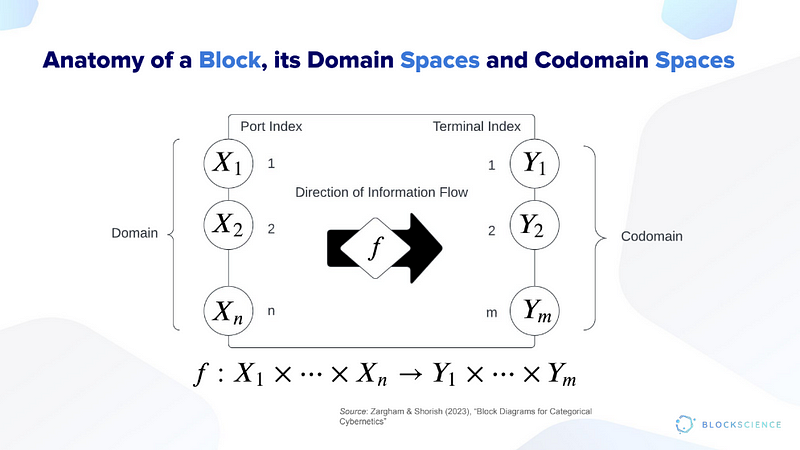
Generalized Dynamical Systems & cadCAD: Spaces, Blocks, and Block Diagrams
If you missed the last cadCAD community call, check out this recording with the latest on the reference implementation by Dr. Jamsheed Shorish. There are exciting updates on breaking out partial state update blocks and policies into separate components, which aim to address challenges like type safety and scalability while maintaining advantages in extensibility.
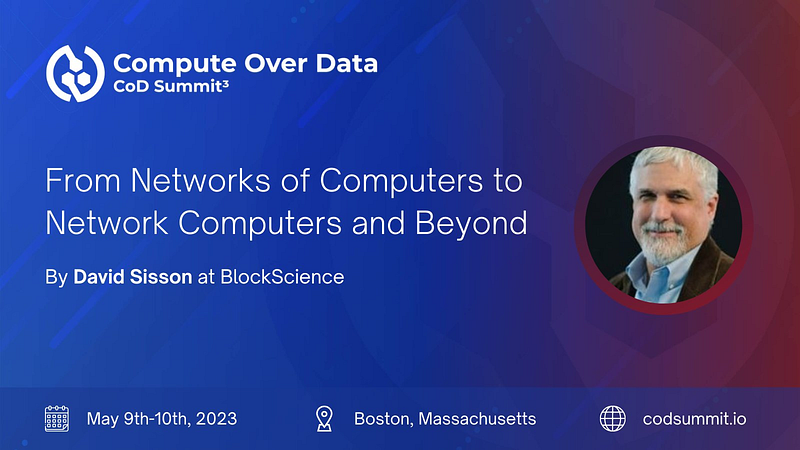
From Networks of Computers to Network Computers and Beyond
David Sisson, senior engineer at BlockScience, was invited to present at the Compute Over Data Summit in Massachusetts in May. His research in computational neuroscience offers a unique and fascinating perspective on the trajectory of technology.
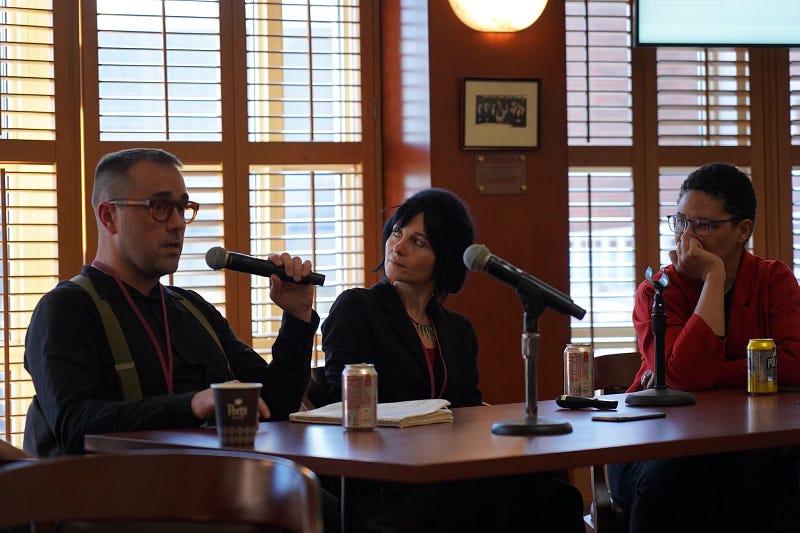
OTNS: Maximum Freedom in Complex Social Organizations
Eric Alston joined the OTNS podcast to discuss institutions, property, constitutions, and blockchains. In the podcast, the discussion turns to a cogent critique of “The Network State” by Balaji Srinivasan, exploring formal vs informal institutions, organizational complexity, and maximum freedom. The podcast aims to examine how these technologies challenge and surpass state structures rather than reify them.
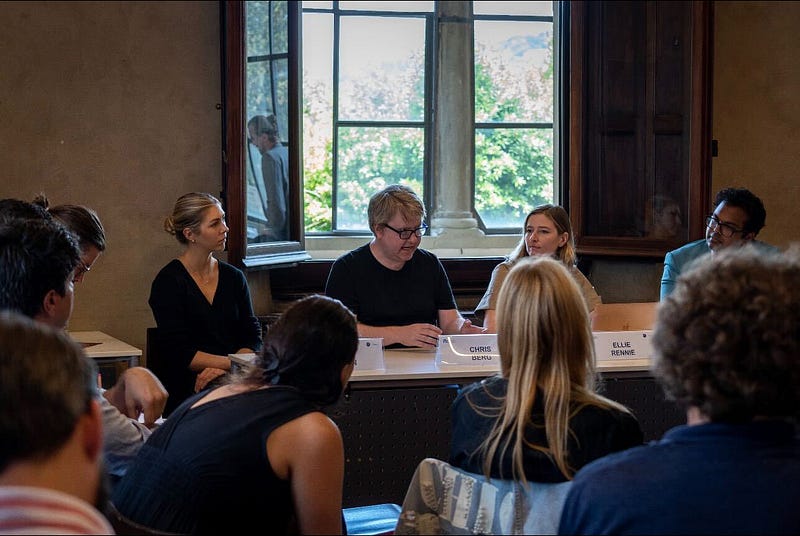
DAO Lisbon Conference: Exploring Intersection of Decentralization & Regulation in Tech Communities
In this insightful session, Kelsie Nabben, BSci’s Social Science Lead, explores the intricate relationship between decentralization and regulation, going beyond architecture to encompass political ideologies. The panel examines the challenges faced by founders balancing decentralized ideals and legal compliance while highlighting the evolving nature of DAOs and their socio-technical dynamics.
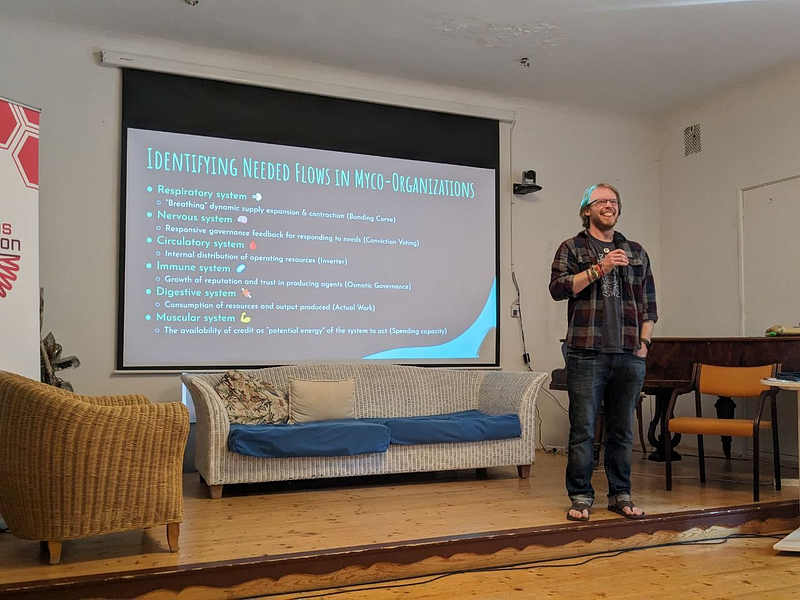
From CoFi to MycoFi: Learning from Nature’s Greatest Collaborators
Building on the theme of Collaborative Finance (CoFi), BSci researcher Jeff Emmett introduces “MycoFi”, the mycelial predecessor of CoFi. Exploring the regenerative economics of mushrooms and their massive contribution to life on Earth, Jeff breaks down some of the necessary flows in economic organizations and examines some of the tools available to sustainably grow and steer these new collective organisms.

Gitcoin Radio: TEC, BlockScience, and Common Ground
If you’re headed out for a walk, have a listen to this podcast on Gitcoin Radio featuring our Communications Lead and researcher Jessica Zartler joining a discussion on Token Engineering, AI, Commons and governance. She shares some of the things she’s seen traveling around the world, speaking with different communities and organizations in the last decade, and offers insights on pathways for systemic change.
ECOSYSTEM UPDATES

Our friends at EthicHub are on a mission to create more financially inclusive and equitable economies. The project offers a low-interest microlending protocol for rural farmers using a regenerative token model that aims to circulate value back to the people creating value in the network. To keep building and expanding opportunities to more farmers around the world, they’re running a crowd equity campaign. Check out their website to learn more.
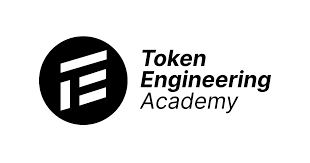
BlockScience was happy to support the founding of, and continuing education offered by, the Token Engineering Academy. The TE Academy is the first organization to offer a comprehensive program in the new field of token engineering. Since its foundation in July 2020, over 900 students from 21 time zones attended TE Academy’s courses. The academy has tons of ongoing free education events and lectures and will be hosting a Token Engineering Track at ETHCC Paris. Browse through the new Events Page on the TE Academy website.
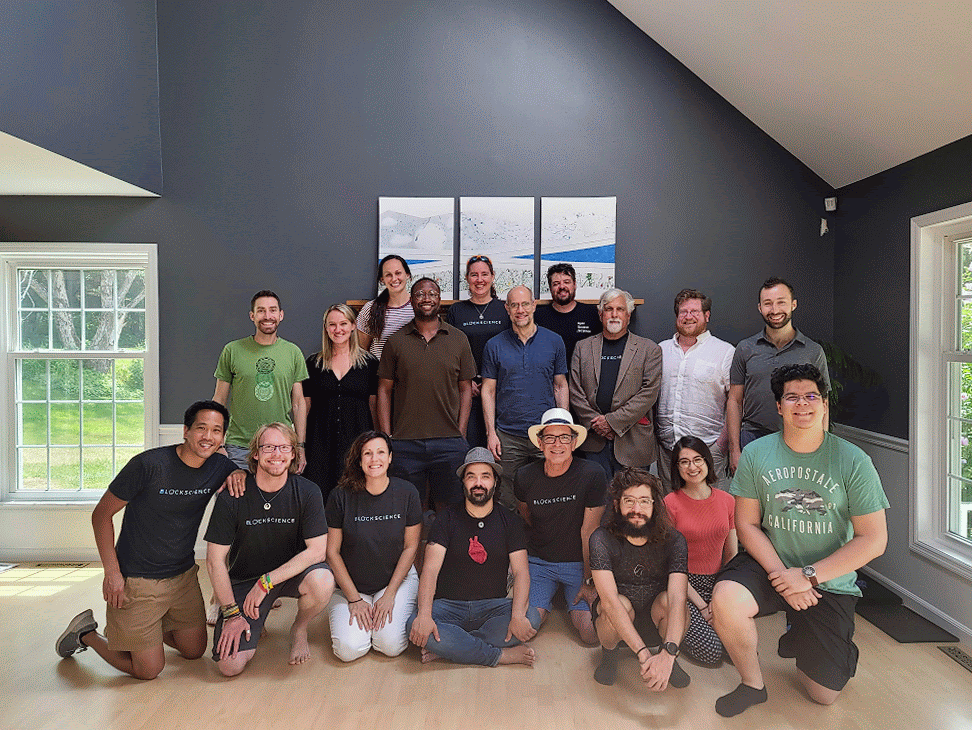
🔬 Stay tuned for the next quarterly update in October! In the meantime, we are excited about our annual BlockScience retreat this month and look forward to sharing our upcoming collaborations, R&D, and company updates.
From our team to you — have a beautiful summer!! 🙏💗😎🌅
ABOUT BLOCKSCIENCE
BlockScience® is a complex systems engineering, R&D, and analytics firm. By integrating ethnography, applied mathematics, and computational science, we analyze and design safe and resilient socio-technical systems. With deep expertise in Market Design, Distributed Systems, and AI, we provide engineering, design, and analytics services to a wide range of clients including for-profit, non-profit, academic, and government organizations.

